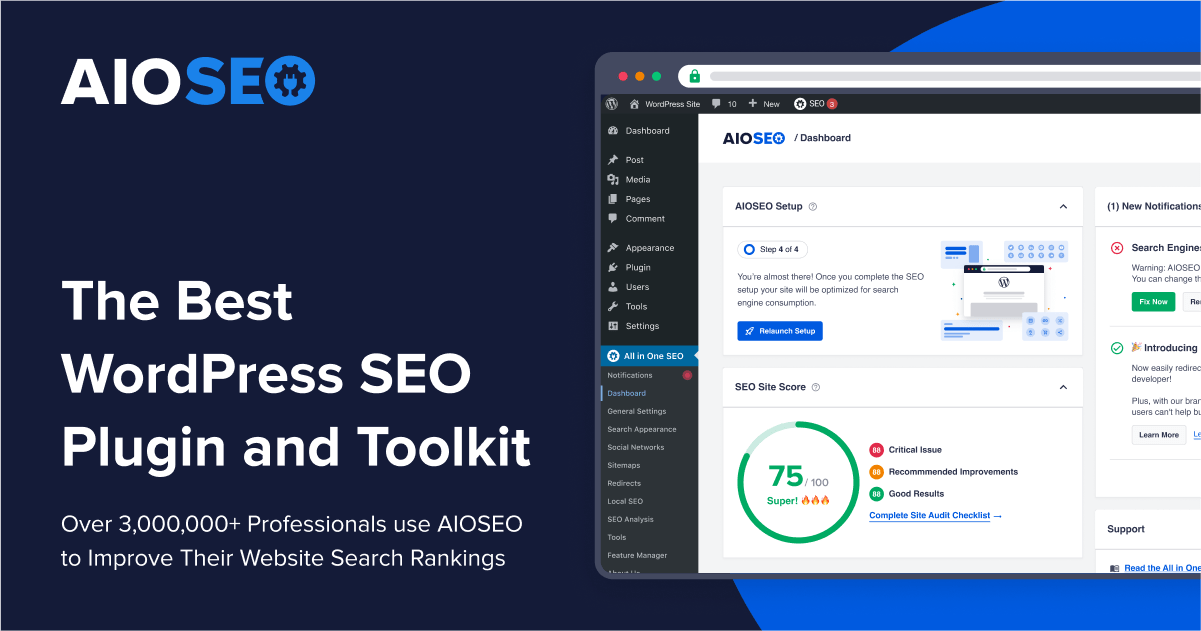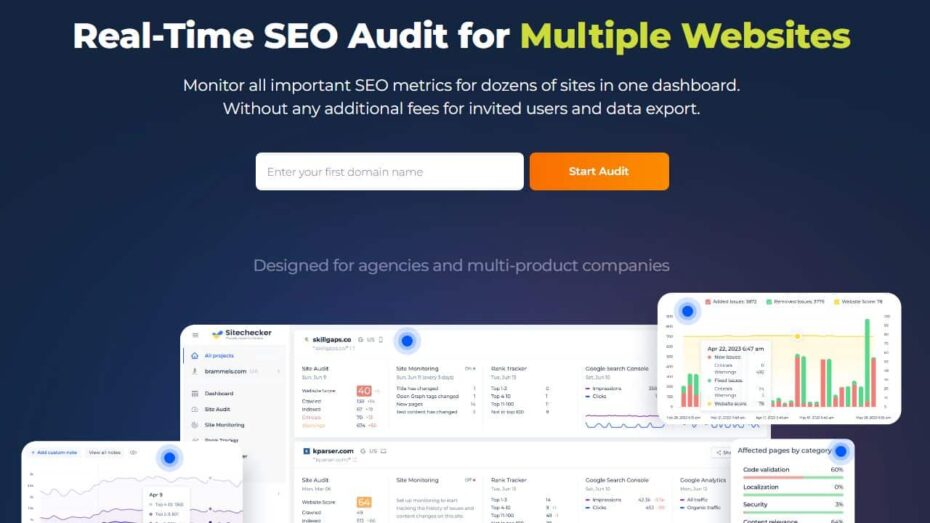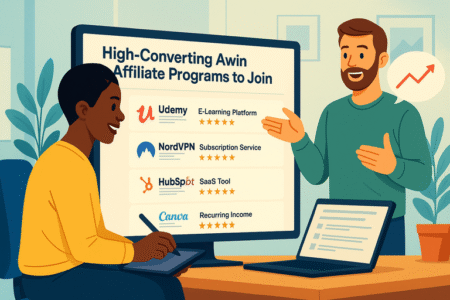Table of Contents
Understanding and avoiding common affiliate mistakes can significantly boost your success in affiliate marketing. This guide provides insights and practical tips to help beginners navigate the affiliate marketing landscape effectively.
The Most Common Affiliate Mistakes to Avoid
Navigating the world of affiliate marketing can be tricky, especially for beginners. Understanding and avoiding common affiliate mistakes is crucial to ensure a smooth and profitable journey. Here are some critical errors that you should be aware of and tips on how to avoid them.
One of the most important aspects of affiliate marketing is understanding your niche. Without a clear focus, it’s easy to get lost in the vast sea of products and services available for promotion. My suggestion is to spend time researching and selecting a niche that you are passionate about and that has a good market demand. This will help you stay motivated and create content that resonates with your audience.
Affiliate Programs Recommendations
FlexOffers
| MyLead
| ShareASale
|
Ignoring the Importance of Niche Selection
Selecting the right niche is the foundation of successful affiliate marketing. I recommend choosing a niche that not only interests you but also has a proven track record of profitability. This focus will enable you to target a specific audience more effectively.
A well-chosen niche allows you to position yourself as an authority, which can significantly increase your credibility and trustworthiness. My advice is to avoid broad or saturated markets; instead, focus on a smaller, more specific segment where you can offer unique insights and value. I point out that a defined niche makes it easier to create targeted and relevant content that attracts and engages your audience.
Additionally, a clear niche selection helps with SEO efforts, as you can optimize your site and content around specific keywords related to your niche. This strategy improves your chances of ranking higher in search engine results.
I suggest conducting thorough keyword research to identify the terms and phrases your potential audience is searching for. Most importantly, stay updated with market trends to keep your niche relevant and in demand.
Failing to Understand Your Audience
Understanding your audience is crucial in affiliate marketing. I believe that knowing who your audience is, what they need, and how they behave can drastically improve your marketing efforts. When you have a clear picture of your target audience, you can create content that speaks directly to their needs and interests.
Start by creating buyer personas that detail the demographics, interests, and pain points of your ideal customers. My recommendation is to use tools like Google Analytics and social media insights to gather data about your audience. This information will help you tailor your content and marketing strategies to better meet their needs.
Engaging with your audience is also essential. I strongly believe that responding to comments, conducting surveys, and asking for feedback can provide valuable insights into what your audience likes or dislikes. This interaction builds trust and loyalty, which are crucial for long-term success. My suggestion is to always listen to your audience and adapt your strategies based on their feedback.
Lastly, continuously monitor and analyze your audience’s behavior to identify patterns and trends. This proactive approach ensures that you stay ahead of the curve and can adjust your content and marketing efforts accordingly. I would say that understanding your audience is an ongoing process that requires constant attention and adaptation.
Neglecting Quality Content Creation
High-quality content is the backbone of affiliate marketing. I advise that you prioritize creating valuable, informative, and engaging content for your audience. Without quality content, it’s challenging to build trust and authority in your niche.
Firstly, focus on providing genuine value through your content. I think that in-depth guides, how-to articles, and comprehensive reviews are excellent ways to deliver value. Ensure your content is well-researched, accurate, and up-to-date to maintain credibility with your audience.
Incorporating multimedia elements like images, videos, and infographics can also enhance the quality of your content. My recommendation is to use these elements to break up text and make your content more engaging and easier to digest. Visuals can also help explain complex topics more effectively.
Consistency in content creation is another crucial factor. I believe that regularly publishing fresh content keeps your audience engaged and helps improve your site’s SEO. Create a content calendar to plan and organize your content production schedule. Most importantly, stick to this schedule to maintain a steady flow of content.
Finally, always proofread and edit your content before publishing. I suggest using tools like Grammarly or Hemingway to check for grammar and readability issues. High-quality content should be free of errors and easy to read, ensuring a positive experience for your audience.
How to Identify and Correct Affiliate Mistakes
Identifying and correcting affiliate mistakes is crucial for long-term success in affiliate marketing. By recognizing where you may be going wrong, you can implement changes that will lead to improved performance and higher earnings.
My suggestion is to regularly analyze your performance metrics. This practice will help you understand what is working and what isn’t. Consistent analysis allows you to make data-driven decisions that enhance your affiliate strategies.
Analyzing Performance Metrics Regularly
One of the best ways to identify affiliate mistakes is by analyzing your performance metrics. I recommend setting up detailed tracking systems to monitor key metrics such as click-through rates, conversion rates, and overall traffic. This data provides insights into how well your campaigns are performing.
Regular analysis helps you spot trends and patterns that can indicate potential issues. I believe that reviewing your metrics weekly or monthly can reveal valuable information about which strategies are effective and which need improvement. Most importantly, use tools like Google Analytics and affiliate dashboards to gather comprehensive data.
When you notice a dip in performance, investigate the cause. My advice is to look at factors such as changes in audience behavior, shifts in market trends, or issues with the affiliate links themselves. I suggest addressing these issues promptly to prevent further negative impact.
Additionally, use A/B testing to compare different strategies and identify the most effective ones. I point out that experimenting with different approaches can provide insights into what resonates best with your audience. My recommendation is to always base your adjustments on solid data rather than assumptions.
Seeking Feedback from Your Audience
Engaging with your audience and seeking their feedback is essential for identifying and correcting affiliate mistakes. I strongly believe that understanding your audience’s needs and preferences can significantly enhance your marketing efforts.
Start by encouraging your audience to leave comments and reviews on your content. I suggest asking specific questions to gather detailed feedback. This interaction not only provides valuable insights but also shows your audience that you value their opinions. Most importantly, use this feedback to refine your strategies.
Conducting surveys is another effective way to gather audience insights. My recommendation is to create surveys that ask about their experiences, preferences, and suggestions for improvement. Analyzing survey results can reveal common pain points and areas where you may be falling short.
Incorporate the feedback into your content and marketing strategies. I advise making adjustments based on the most frequent and relevant feedback. This approach ensures that your strategies align more closely with audience expectations and needs.
Lastly, maintain an open line of communication with your audience. I would say that regularly engaging with your audience through emails, social media, and comments can foster a loyal community. My suggestion is to continuously seek feedback to keep improving your affiliate marketing efforts.
Continuous Learning and Adaptation
In the ever-evolving field of affiliate marketing, continuous learning and adaptation are key to success. I believe that staying updated with industry trends and best practices can help you avoid mistakes and stay competitive.
Start by subscribing to industry blogs, podcasts, and newsletters. My advice is to follow thought leaders and experts in affiliate marketing to gain insights and stay informed about the latest developments. Most importantly, apply this knowledge to your own strategies.
Attending webinars and conferences can also provide valuable learning opportunities. I recommend participating in events that focus on affiliate marketing, SEO, and digital marketing. These events often offer practical tips and networking opportunities with other marketers.
Experiment with new tools and techniques to keep your strategies fresh and effective. I point out that trying out different approaches can help you discover what works best for your niche and audience. My recommendation is to be open to change and willing to adapt your methods as needed.
Avoiding Missteps: Essential Tips for Affiliate Beginners
Starting out in affiliate marketing can be overwhelming, but avoiding common pitfalls is crucial for success. By following these essential tips, beginners can navigate the affiliate marketing landscape more effectively and achieve better results.
My recommendation is to focus on choosing reliable affiliate programs, building trust with your audience, and employing effective promotion strategies. These foundational elements can significantly enhance your affiliate marketing efforts and lead to long-term success.
Choosing Reliable Affiliate Programs
Selecting the right affiliate programs is a critical first step in your journey. I advise that you thoroughly research potential programs before committing to them. Look for programs that offer fair commission rates, reliable tracking, and timely payments. Most importantly, ensure that the products or services align with your niche and audience.
A reliable affiliate program will provide you with the necessary tools and support to succeed. I suggest looking for programs that offer detailed analytics, marketing materials, and dedicated affiliate managers who can assist you. I believe that strong support can make a significant difference in your ability to promote products effectively.
Moreover, reading reviews and testimonials from other affiliates can provide insights into the reliability of a program. I point out that positive feedback from fellow marketers is a good indicator of a trustworthy program. My recommendation is to start with well-known affiliate networks like Amazon Associates, ShareASale, or CJ Affiliate.
Regularly review and evaluate your affiliate partnerships to ensure they continue to meet your standards. I think it’s important to stay flexible and be willing to switch programs if they no longer serve your best interests. My advice is to prioritize quality over quantity when it comes to affiliate partnerships.
Building Trust with Your Audience
Trust is the cornerstone of successful affiliate marketing. I suggest focusing on building a genuine relationship with your audience to foster trust and loyalty. This approach will not only increase your credibility but also improve your conversion rates.
First, always be transparent about your affiliate relationships. I recommend clearly disclosing when you are using affiliate links. This honesty builds trust and ensures your audience feels informed and respected. I strongly believe that transparency is key to maintaining a loyal following.
Next, provide valuable and honest content. I believe that high-quality reviews, tutorials, and informative articles can position you as an authority in your niche. My suggestion is to focus on creating content that genuinely helps your audience rather than just trying to sell products.
Engaging with your audience is also crucial. I point out that responding to comments, emails, and social media messages can create a strong connection with your audience. Most importantly, listen to their feedback and adjust your strategies accordingly.
Lastly, build a community around your brand. I would say that creating a loyal and engaged audience can lead to long-term success. My advice is to use tools like email newsletters, social media groups, and forums to foster a sense of community and keep your audience engaged.
Effective Promotion Strategies
Implementing effective promotion strategies is essential for driving traffic and increasing conversions. I recommend using a mix of different promotional methods to reach a broader audience and achieve better results.
First, leverage content marketing to promote your affiliate products. My advice is to create valuable blog posts, videos, and social media content that highlight the benefits of the products you are promoting. Most importantly, focus on providing solutions to your audience’s problems.
Email marketing is another powerful tool for affiliate promotion. I suggest building an email list and regularly sending out newsletters with helpful content and product recommendations. I believe that a well-crafted email campaign can significantly boost your affiliate sales.
Utilize SEO to improve your website’s visibility. I point out that optimizing your content for search engines can drive organic traffic to your site. My recommendation is to use relevant keywords naturally throughout your content and focus on creating high-quality, informative articles that answer your audience’s questions.
Finally, consider paid advertising to reach a larger audience. I would say that investing in PPC campaigns, social media ads, and sponsored posts can drive targeted traffic to your affiliate offers. My suggestion is to start with a small budget and gradually scale up as you see positive results.
Affiliate Mistakes that Can Hurt Your Earnings
In affiliate marketing, certain mistakes can significantly impact your earnings. Avoiding these common pitfalls is essential to ensure that your efforts translate into profits. My advice is to be mindful of these mistakes and implement strategies to overcome them.
I recommend focusing on maintaining a balance on your site, adhering to SEO best practices, and diligently tracking your affiliate links. Addressing these areas can help you maximize your earnings and build a sustainable affiliate marketing business.
Overloading Your Site with Ads
Overloading your site with ads is a common mistake that can deter visitors and hurt your earnings. I believe that while ads are a source of revenue, too many can create a poor user experience. When visitors are bombarded with ads, they are more likely to leave your site quickly, increasing your bounce rate.
My suggestion is to focus on quality over quantity. Select a few high-performing ads and place them strategically on your site. Most importantly, ensure that the ads are relevant to your content and audience. This relevance increases the likelihood that visitors will engage with the ads, leading to higher conversions.
Additionally, consider the overall design and layout of your site. I point out that a clean, uncluttered design enhances readability and keeps visitors on your site longer. I recommend using tools like heatmaps to analyze user behavior and adjust ad placements accordingly. This approach can help you find the optimal balance between monetization and user experience.
Ignoring SEO Best Practices
Ignoring SEO best practices is another mistake that can hurt your affiliate earnings. I advise that you prioritize SEO to drive organic traffic to your site. Without proper SEO, your content may not rank well in search engine results, reducing your visibility and potential earnings.
First, focus on keyword research. I think that understanding the keywords your audience is searching for is crucial. My suggestion is to use tools like Google Keyword Planner and Ahrefs to identify relevant keywords. Incorporate these keywords naturally into your content to improve your chances of ranking higher.
Second, create high-quality, valuable content. I believe that search engines prioritize content that provides genuine value to users. My recommendation is to write comprehensive articles, guides, and reviews that address your audience’s needs and questions. Most importantly, keep your content updated and relevant.
Third, optimize your on-page SEO elements. I recommend paying attention to title tags, meta descriptions, header tags, and image alt texts. These elements help search engines understand your content and improve your rankings. I point out that a well-optimized site is more likely to attract and retain visitors.
Finally, build high-quality backlinks. My advice is to engage in guest posting, collaborations, and outreach to earn links from reputable sites. Backlinks signal to search engines that your content is credible and authoritative, boosting your rankings and organic traffic.
SEO Services Recommendations
 AIOSEO
|  Sitechecker
|  Squirrly
|
Not Tracking Affiliate Links
Not tracking affiliate links is a critical mistake that can result in lost earnings. I strongly believe that tracking is essential to understand the performance of your affiliate campaigns. Without tracking, you won’t know which links are generating clicks and conversions.
Start by using a reliable affiliate link tracking tool. I suggest platforms like ThirstyAffiliates or Pretty Links to manage and track your links. These tools provide valuable insights into click-through rates and conversions, helping you identify high-performing links.
Regularly analyze your tracking data to make informed decisions. I recommend looking for patterns and trends in your data. My advice is to focus on the links that are performing well and optimize those that aren’t. Most importantly, use this data to refine your content and marketing strategies.
Additionally, ensure that your tracking setup is accurate. I point out that incorrect tracking can lead to misleading data and poor decision-making. I suggest testing your links regularly to confirm that they are tracking correctly and that you are receiving credit for your referrals.
Lastly, use tracking data to improve your user experience. I would say that understanding how visitors interact with your links can help you optimize their placement and presentation. My recommendation is to place affiliate links naturally within your content and ensure they provide value to your readers.
Key Affiliate Marketing Pitfalls to Steer Clear Of
In the dynamic world of affiliate marketing, beginners often fall into common pitfalls that can hinder their progress and earnings. I recommend being aware of these pitfalls and taking proactive steps to avoid them. By doing so, you can build a successful and sustainable affiliate marketing business.
My suggestion is to focus on promoting a manageable number of products, being transparent about your affiliate relationships, and maintaining patience and persistence. These strategies will help you create a trustworthy brand and achieve long-term success.
Promoting Too Many Products at Once
One of the most common mistakes in affiliate marketing is promoting too many products at once. I believe that trying to market a wide range of products can dilute your efforts and confuse your audience. Most importantly, it can make your content seem scattered and less focused.
My advice is to start with a few carefully selected products that align with your niche and audience interests. This focused approach allows you to create detailed, high-quality content for each product. I suggest conducting thorough research to choose products that offer value and have a good reputation. My recommendation is to become an expert in a few products rather than a jack-of-all-trades.
Promoting a limited number of products also makes it easier to track performance and optimize your strategies. I point out that you can dedicate more time to testing different approaches and finding what works best. I recommend regularly reviewing your product portfolio and making adjustments based on performance data.
Failing to Disclose Affiliate Relationships
Transparency is crucial in affiliate marketing. I strongly believe that failing to disclose your affiliate relationships can damage your credibility and trust with your audience. When your audience feels misled, they are less likely to trust your recommendations and more likely to abandon your site.
I advise always being upfront about your affiliate relationships. Clearly disclose when you are using affiliate links, either through a statement at the beginning of your content or by marking each link individually. Most importantly, make your disclosures easy to understand and visible to your audience.
Honesty about your affiliations not only builds trust but also complies with legal requirements. I point out that many countries have regulations mandating the disclosure of affiliate relationships. My suggestion is to familiarize yourself with these regulations to avoid potential legal issues.
Moreover, transparency can enhance your reputation as an honest and reliable source. I believe that when your audience knows you are transparent, they are more likely to value and follow your recommendations. I would say that building this trust is essential for long-term success in affiliate marketing.
Lack of Patience and Persistence
Success in affiliate marketing requires patience and persistence. I think that expecting quick results can lead to frustration and discouragement. Affiliate marketing is a long-term endeavor that takes time to yield significant results.
My recommendation is to set realistic expectations and understand that building a successful affiliate marketing business takes time. I suggest focusing on creating high-quality content and consistently promoting your affiliate products. Most importantly, remain patient and persistent even when progress seems slow.
Continuously learning and adapting is also crucial. I believe that staying updated with industry trends and experimenting with different strategies can help you improve over time. I advise joining affiliate marketing communities and attending webinars to gain insights and stay motivated.
Finally, track your progress and celebrate small wins. I point out that recognizing your achievements, no matter how small, can boost your motivation and persistence. My suggestion is to regularly review your goals and adjust your strategies based on what you learn. I would say that patience and persistence are key to achieving long-term success in affiliate marketing.
Conclusion
Avoiding common affiliate mistakes is crucial for beginners aiming to succeed in the competitive world of affiliate marketing. I believe that by being aware of these pitfalls and implementing strategies to overcome them, you can build a strong foundation for your affiliate business.
My recommendation is to focus on niche selection, understanding your audience, and creating high-quality content. Most importantly, be transparent about your affiliate relationships and maintain patience and persistence. By doing so, you can establish a trustworthy brand and achieve long-term success in affiliate marketing. I advise taking these steps to avoid the common affiliate mistakes and pave the way for a prosperous affiliate marketing journey.









